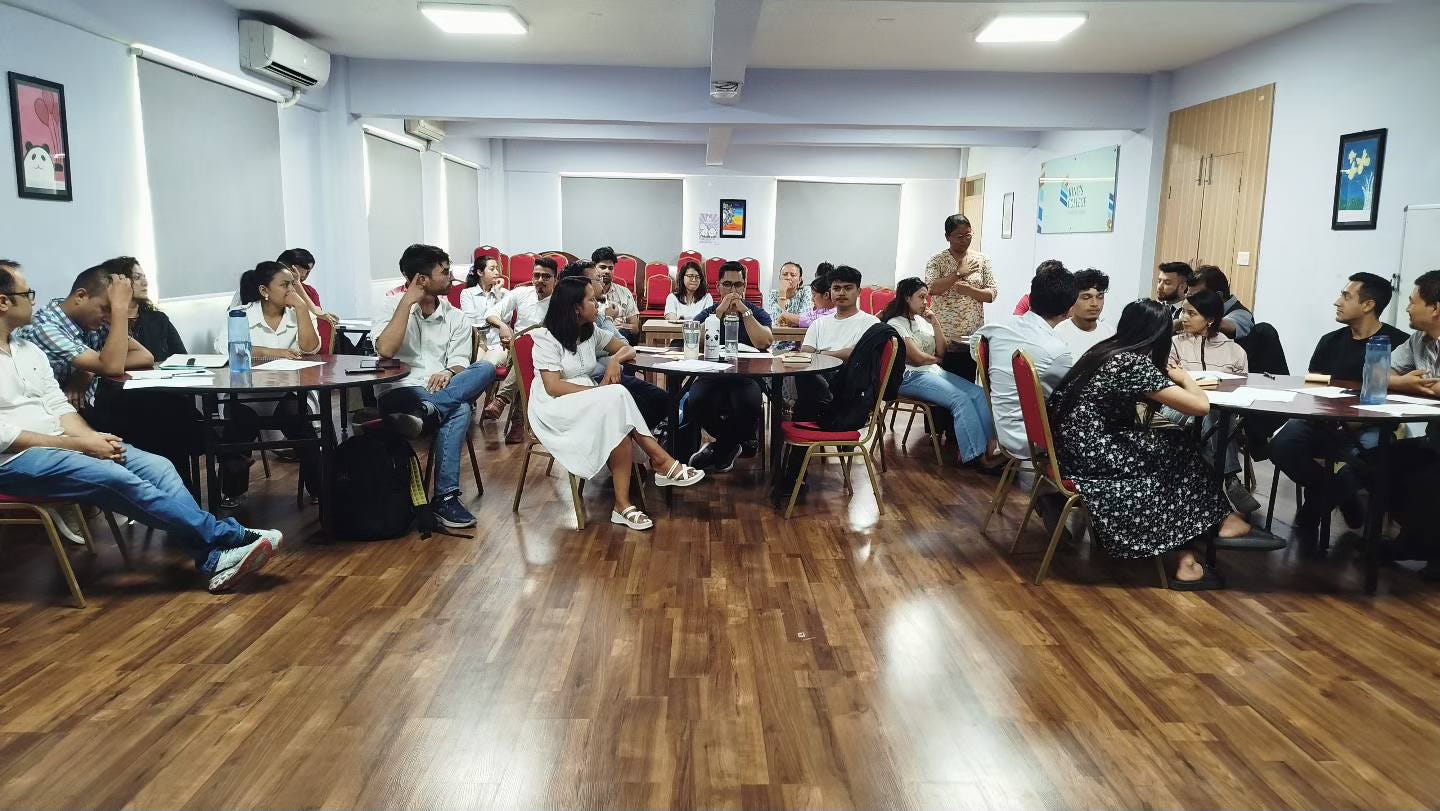Part 7 - Making of an expert teacher
The more you are experienced, the better you can see in a complex environment
The difference between an expert and a novice is:
“Novices see only what is there; Experts can see what is not there.”
With experience, a person gains the ability to visualize how a situation developed and to imagine how the situation is going to turn out (Klein & Hoffman, 1993).
I recently read this interesting paper titled “Attention Shifts to More Complex Structures With Experience” by Forest, Siegelman, & Finn (2022).
The paper explores how we pay attention to different types of information ‘differently’ as we gain more experience with that information over time.
The researchers conducted two experiments where participants watched, on a computer screen, four simultaneous streams of information that varied in complexity.
The four streams had different levels of complexity or predictability:
Very predictable (simple),
Moderately predictable,
Quite unpredictable (complex), and
Completely random.
Here’s one of the key findings of the research:
“As we learn the patterns in our environment over time, our attention system intelligently re-allocates our limited attention resources to the more complex aspects.”
To rephrase what Klien and Hoffman had said, as we move from novice to expert level, we start to see the "invisible” as well.
For me, these insights perfectly illustrate how beginner teachers and expert teachers tend to focus on different aspects of teaching and learning in their classrooms.
For a beginning teacher, the classroom environment can seem very complex, overwhelming, and unpredictable.
There are so many new patterns and routines to learn. Like managing students' behavior, planning effective lessons, making sure everyone is attending, using technology, making sure you cover the lessons, and so on.
In the early stages, a new teacher's limited attention is often drawn to the simpler, more predictable aspects like the visible part of classroom management. Anything beyond that might overload their working memory and give them a headache (literally).
However, as the beginner teachers gain more experience over time, their attention starts to shift towards the more invisible and complex challenges.
For example, they will be able to re-allocate their attention to things like checking for understanding, asking better questions, and making students “think”. They will also be able to focus on building strong relationships with students, managing self-motivation, and understanding schoolwide policies/initiatives.
In contrast, an expert teacher’s attention is automatically focused on the more complex pedagogical and interpersonal aspects. Their experienced "attention system" recognizes how students are learning, interacting, and collaborating.
Alright.
You can stop reading here. But if you want to dive in more and nerd out, go ahead and read the following section.
Four levels of complexity:
Borrowing the idea of different levels of complex streams of information from the paper, I want you to imagine that there are similar four levels of teaching.
1) Predictable/Simple: Basic classroom management routines and procedures. Things like lining up, getting materials ready, transitioning between activities, etc. These are very structured and predictable for an experienced teacher.
2) Moderately Predictable: Effective lesson planning and curriculum delivery. While there is more complexity here than basic routines, an experienced teacher has a moderately predictable formula for planning engaging lessons aligned to learning standards.
3) Quite unpredictable/Complex: At this level, the teacher can plan how to challenge the students through questioning and how to make them think deeper. The teacher is able to handle the moments when a student stumbles upon a unique problem or knowledge/procedural gap in the subject. Similarly, the teacher knows the types of “difficult” questions the students will ask and thus can respond to their confusion and queries at the moment.
4) Completely Random: Handling unexpected disruptions, student “hidden” behavior issues, or changes to the plan at the moment. These are the most complex situations with completely unpredictable factors that even veteran teachers can't fully anticipate.
Just as the paper found attention shifts to more complex streams over time, for new teachers to move towards mastery, they must first focus more on mastering the simple, predictable routines.
And gain experience and mastery in all the subsequent levels.
As they gain experience, their attention can expand to the moderately predictable aspects of lesson planning. With years of experience, their attention is then able to prioritize the complex work of differentiation. And even expert teachers still have to dynamically allocate attention to completely random disruptions each day.
===
Let me end this with two relevant quotes:
“The accumulation of experience and expertise does not weigh people down; it lightens them up.” - Gary Klien, Sources of Power: How people make decisions.
“Excellence is never an accident. It is always the result of high intention, sincere effort, and intelligent execution; it represents the wise choice of many alternatives – choice, not chance, determines your destiny.” - Aristotle
Forest, T. A., Siegelman, N., & Finn, A. S. (2022). Attention Shifts to More Complex Structures With Experience. Psychological Science, 33(12), 2059-2072.
Klein, G.A. & Hoffman, R.R. (1993). Seeing the invisible: Perceptual-cognitive aspects of expertise. In M. Rabinowitz (Ed.), Cognitive science foundations of instruction (pp. 203–226).




